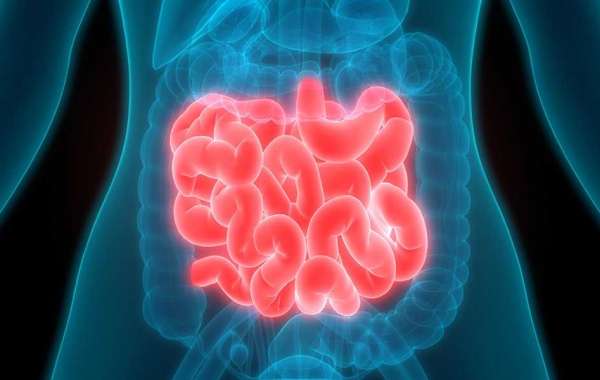As more women seek to make conscious choices about their health, sustainability has become a significant factor in the decision-making process. Toxic-free periods are not just a trend but a necessity for both our bodies and the planet. Understanding how to protect your health while being environmentally responsible is crucial in today’s world.
What’s Inside Conventional Products?
Many traditional menstrual products are made from synthetic materials such as bleached cotton, rayon, and plastics. These materials can contain harmful chemicals like,
Chlorine, used in bleaching to make cotton and rayon appear whiter. This process can create toxic dioxins, which are harmful to health.
Fragrances, in many pads and tampons contain added fragrances that can disrupt your hormonal balance and irritate sensitive skin.
Pesticides, conventional cotton is often grown with heavy pesticide use, which can end up in your products.
Exposure to Harmful Chemicals
Many traditional menstrual products are bleached using chlorine, which can result in the formation of dioxins—toxic compounds known to be carcinogenic.
These chemicals can enter the body through the skin or mucous membranes and accumulate over time, potentially leading to serious health conditions such as cancer, reproductive disorders, and immune system damage.
Harmful Chemicals in Conventional Period
One of the biggest concerns about mainstream period care products is the presence of chemicals that can disrupt your body's hormonal balance. For example, dioxins, a byproduct of bleaching, are toxic compounds that have been linked to cancer, reproductive issues, and developmental problems.
Phthalates and parabens, commonly used as preservatives and fragrances, can mimic estrogen in the body, contributing to endocrine disruption and affecting menstrual cycles.
Environmental Impact of Disposable Period Products
The environmental footprint of traditional menstrual products is alarming. Single-use pads and tampons are often made from a combination of cotton (which can be heavily pesticide-treated), synthetic fibers like rayon, and plastic.
These products are not biodegradable and take hundreds of years to break down in landfills.
In fact, it is estimated that over 45 billion tampons, pads, and pantyliners are used globally each year, contributing to millions of tons of waste.
Additionally, the production of these products involves extensive use of water, energy, and chemicals, all of which negatively impact the environment.
How Lowering the Environmental Impact plays a role?
In addition to their negative effects on human health, conventional menstrual products are environmentally damaging. Switching to biodegradable, organic cotton products significantly reduces waste and pollution.
Brands that offer reusable period products—such as menstrual cups, period underwear, and cloth pads—go even further in reducing environmental impact by eliminating disposable products altogether.
This shift towards sustainability helps decrease landfill waste and minimizes the carbon footprint of menstrual hygiene.
How Eco-conscious period products play a role in Toxic-Free Period Care?
Traditional period products like tampons, pads, and liners often contain synthetic materials such as bleached cotton, rayon, or plastics, along with chemical additives like pesticides, dyes, and fragrances.
These chemicals can be absorbed into the body and may cause irritation, allergic reactions, or long-term health risks.
These Eco-conscious period products, on the other hand, are typically made from organic cotton, bamboo, or other natural fibers that are free from synthetic chemicals and pesticides. These products are often unbleached and fragrance-free, reducing the risk of skin irritation and toxic exposure during menstruation.
Environmental Benefits
Choosing reusable options such as menstrual cups or cloth pads can significantly reduce the waste produced during menstruation. A single menstrual cup can last for years, making it a far more sustainable option than disposable products.
Many toxic-free products are designed to be plastic-free or use minimal plastic packaging. This helps reduce the overall environmental burden caused by single-use plastics.
By opting for organic cotton products, you are supporting sustainable agricultural practices that use fewer pesticides and fertilizers, contributing to healthier soil and ecosystems.
A Note on Environmental Impact
Another reason to consider going toxic-free is environmental sustainability. Conventional pads and tampons are often made from plastic, synthetic fibers, and other materials that are not biodegradable. This results in a significant amount of waste being generated every year, contributing to landfill buildup.
Non-toxic alternatives, such as organic cotton pads, menstrual cups, and reusable cloth pads, not only eliminate harmful chemicals from your routine but also reduce your environmental footprint.
Supporting Ethical Brands and Fair Labor Practices
Many toxic-free period care products are made by companies that prioritize ethical production methods, such as fair labor practices and sustainable sourcing.
When you choose organic cotton tampons or eco-friendly menstrual products, you are supporting brands that are committed to transparency and social responsibility.
This ensures that your menstrual products are not only safe for you but also for the workers who produce them and the communities they come from
Conclusion
As more people make the shift toward greener, safer menstrual options, the market for toxic-free period products will continue to grow, leading to more innovative solutions for sustainable menstruation. Whether you opt for organic cotton tampons, a menstrual cup, or reusable pads, taking the step toward a healthier, more eco-friendly period is a choice that benefits both you and the world around you.










